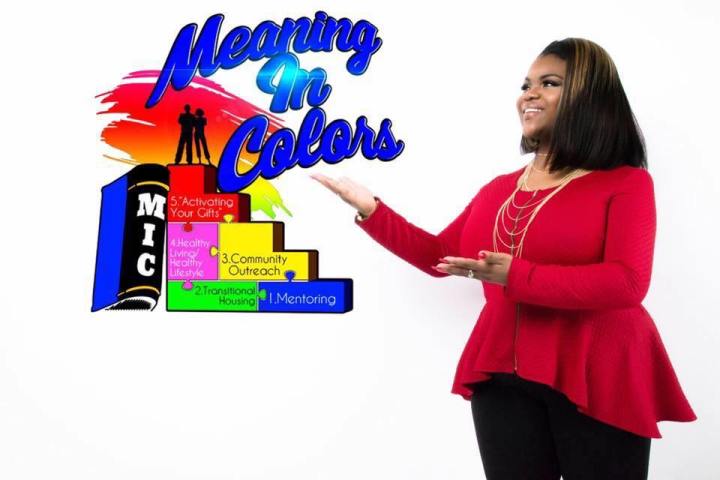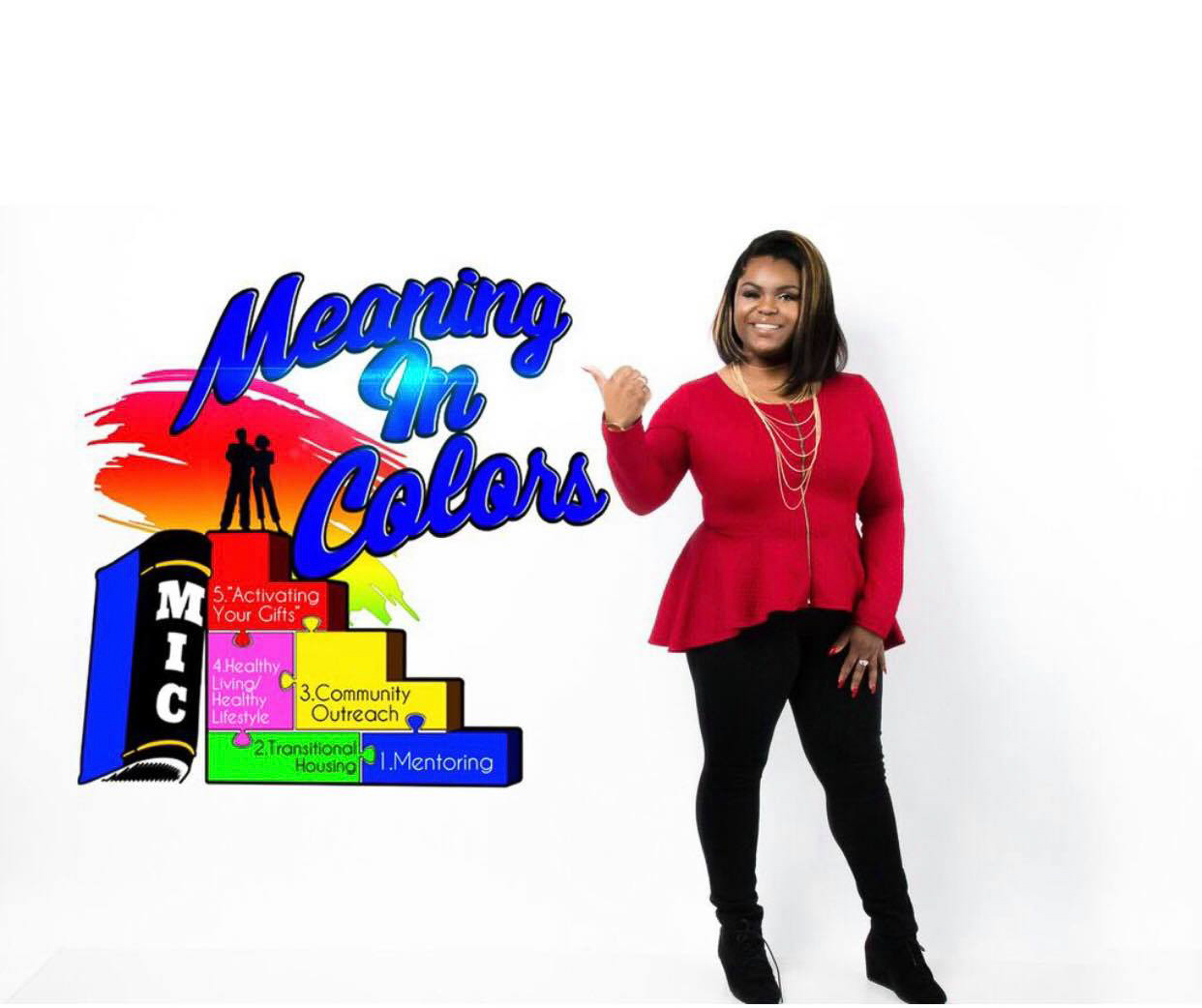By Kayla Sosa
A local woman is helping bring people out of poverty through empowerment and education.
Iryonna Hogan started her nonprofit, Meaning in Colors, in 2017. She provides many opportunities for people going through tough phases of their life, one aspect being providing transitional housing at a low-cost.
“Individuals who are either facing homelessness, there’s an income barrier or a credit issue, we allow them to move in,” Hogan said. “We’re really trying to target that population of people that actually work and pay taxes, but they just have one of those barriers.”
Tenants must be working a job and have a goal for stability. The housing is all transitional, so tenants can choose to stay for three months, six months, nine months or a year depending on their needs.
For example, a college student that is waiting to get into a dorm or needs a place to stay during the summer is a typical three-month client, Hogan said.
“Anything from about six months to nine months is some issues with credit, can be a matter of just saving a deposit and things like that,” Hogan said. “Or someone who’s facing eviction, we don’t want them to have to go through that eviction status so we allow them to move in with us.”
Someone staying nine months to a year typically has severe credit issues, Hogan said, or low income.
Before moving in, Hogan does inventory by having potential clients go through an intake process, where she assesses what they have.
“Anywhere from social security cards, do they have any degrees, do they have their birth certificates, all of those basic, essential things that you need to move forward,” Hogan said. “Do they know what credit is, or what their credit score looks like and things like that. That will give us an idea of what’s going on with this person.”
After taking inventory, Hogan then helps the client set two goals for themselves – one housing-related goal and one personal goal.
“Sometimes we have clients who may lose custody of their children because of various reasons and things like that, so they may say, ‘I want to get a two bedroom home and then get my child back,’” Hogan said.
Other goals could be related to saving money or other personal priorities.
Within three months of that first initial session, the client must then take a life skills class offered by the nonprofit.
“Typically we’ll have someone come in and talk to them about the basic needs,” Hogan said. “What your housing situation looks like, what do you need to look for, how to become structured and time management.”
Within three to six months of the program, Hogan then helps clients look at their credit by teaching them what it is, why it matters, how to read a credit report and how to move forward out of their current situation. Hogan said many times she will refer clients to outside agencies to help with various parts of the credit process.
“When they enter our program they have to at least do, at a minimum, the life skills class and the credit class,” Hogan said. “We want to make sure everyone that leaves us has some knowledge of what that looks like and where they’re at, because we believe those are critical things that affects their living.”

Hogan, the landlord, has house meetings once a month with her tenants to discuss potential needs within the house but also resources available in the community – food pantries, social services and more.
Providing these kinds of services on top of a full-time job can be too much for many people, but Hogan was inspired to do this after experiencing some hardships of her own.
As a young adult, Hogan got pregnant while she was in college and felt a lot of shame after coming home to family, feeling like she let people down. She moved from all she knew in Adrian back to Grand Rapids, losing her entire network for the past few years.
“My emotions were just all over because that was not where I saw my life (going),” Hogan said.
She got hired as a membership clerk at the local Boys and Girls Club. While she was very grateful to have a job, she was still struggling getting paid around $10 an hour, not being able to pay all her bills but also not qualifying for financial assistance.
“I remember trying to reach out to different resources but, through this job, they told me I didn’t qualify because of the amount of money I was making,” Hogan said. “I remember doing my finances like, this isn’t enough to have an apartment, this isn’t enough to pay my car note, this isn’t enough to buy food.”
“There were just so many rules as to needing help through my journey and I was like, ‘What do they have for people who go to work but just don’t make enough money and just need help for a moment in time?”
Hogan eventually moved on to working for the Gerald R. Ford Job Corps Center, where her eyes were even more opened to the different experiences of people struggling for a moment in their life. Many of the Job Corps students had a similar situation where they wanted to move back to Grand Rapids, but had various credit problems or didn’t make enough money to afford housing.
“Most of our students come from the Detroit area, Saginaw, Muskegon and so they have found a liking to Grand Rapids, but they couldn’t stay because of this barrier,” Hogan said. “I was like, how cool would it be if I had housing where they can complete their program, they already have their jobs, but they just need a moment to be able to stay somewhere so that they can increase their income, see what Grand Rapids is like, get an idea of paying rent but at a minimum amount.”
After realizing that the conflict of interest wouldn’t allow her to have Job Corps students as residents, Hogan turned to the broader community and found many people facing similar struggles – veterans, people with disabilities, people facing homelessness.
“I was starting to get 10-15 requests a week,” Hogan said, who at the time only had one unit to rent out.
She now has three units and is working towards a goal of owning them all, instead of renting them. One house has 5 bedrooms, one has four and another has two. Clients typically rent individual rooms.
“Believe it or not, I have been funding this all myself,” Hogan said, who works full-time and has a young son. “I believe that God provided in other areas for me to be able to make it possible, I don’t want to just give credit to myself.”
Those interested in getting involved or seeking services can visit meaningincolors.com or contact Hogan directly at Iryonnahogan@gmail.com.
Donations are accepted at Bloom Credit Union under “Meaning in Colors” or by check to P.O. Box 6292, Grand Rapids, MI, 49516.

